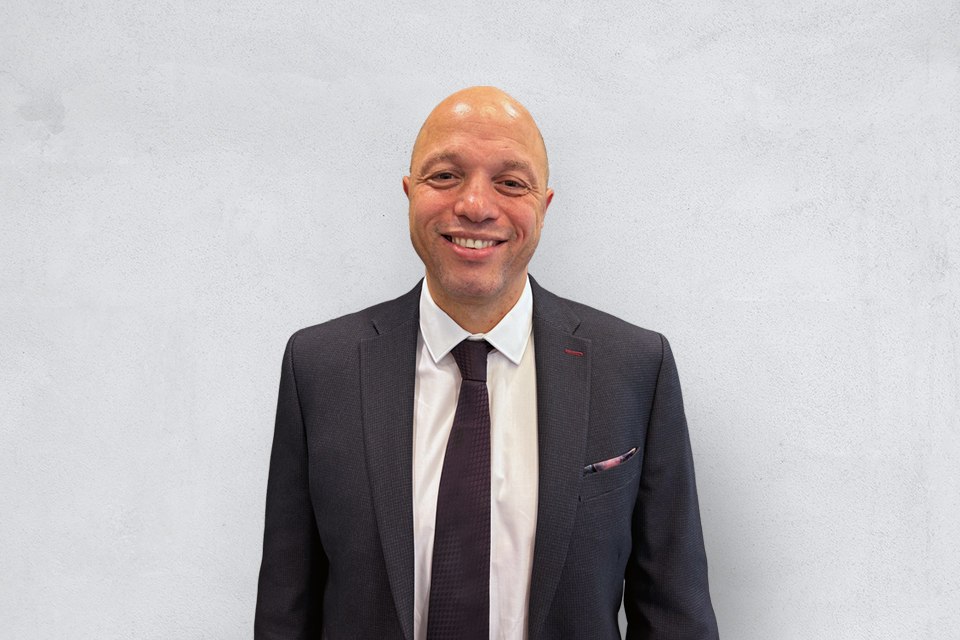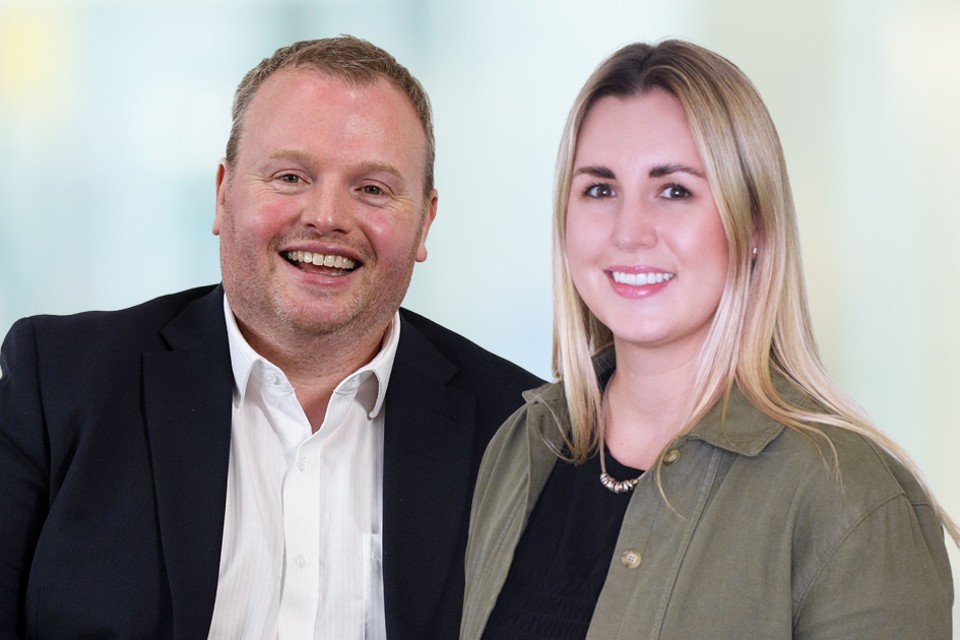Insights
Expert views, insights and features on the financial matters you need to know
-
24 Apr 202410 minPodcast - NHS dentistry in Scotland
From tax bands to the importance of financial planning, this podcast discusses what life’s like for NHS Dentists and their finances in Scotland.
podcasts, dentists, financial planning, -
22 Apr 20245 minWesleyan's April 2024 investment update
Wesleyan’s Director of Investments, Martin Lawrence, discusses the regional race for interest rates cuts and hopes for a UK stock market rally.
investments, financial planning, -
18 Apr 20245 min2024 - Q1 market commentary
In our recent market commentary, we explore some of the highlights and the lowlights of the quarter. Read more.
investments, financial planning, market commentary, -
11 Apr 20244 minUK share prices climb to near record highs
Stock markets around the world have risen amid hopes of interest rate cuts later in the year.
investments, financial planning, -
10 Apr 202433 minPodcast - Retirement and pension planning for medics
This podcast answers some of the most asked questions around retirement and pensions for medics in 2024.
podcasts, retirement, doctors pension, nhs pension, -
09 Apr 20245 minNew tax year: Key changes for 2024/25
Here we delve into key announcements from the 2024 Spring Budget – and the changes to be aware of in preparation for the new financial year.
financial planning, investments, -
14 Mar 20245 minWesleyan's March 2024 investment update
Here, Wesleyan's Director of Investments looks back on investment markets in February - including an update on interest rate cuts.
investments, financial planning, -
14 Mar 202424 minPodcast - Estate planning
Here, Simon Cosgrove, Specialist Financial Adviser at Wesleyan Financial Services, discusses what happens to your estate when you die.
podcasts, financial planning, -
07 Mar 20244 minUK stock market shrugs off news of a recession
Despite a recession, the FTSE rose in February. Investors expect interest rates to be lowered soon, but are there more reasons for hope?
investments, financial planning, -
07 Mar 20244 minSpring Budget: What's in it for teachers?
What do the announcements from the Spring Budget 2024 mean for teaching professionals? Read more.
teachers, teachers pension, cost of living for teachers, -
07 Mar 20244 minSpring Budget: A good deal for doctors?
What do the announcements from the Spring Budget 2024 mean for medical professionals? Read more.
doctors, doctors pension, cost of living for doctors, -
06 Mar 20244 minSpring Budget: How will it impact dentists?
What do the announcements from the Spring Budget 2024 mean for dental professionals? Read more.
dentists, -
06 Mar 20244 minBudget briefing: Talking up tax cuts
What were the announcements from the Spring Budget 2024, and what do they mean for you? From taxes to the cost of living, read more.
financial planning, investments, financial wellbeing, -
28 Feb 202418 minPodcast - Christie & Co's Business Outlook for dentists
Find out what Christie & Co's recently published Business Outlook means for dentists and their finances.
podcasts, dentists, -
27 Feb 20244 minCan we expect changes to our mortgage rates?
Dental Regional Manager from Wesleyan Financial Services, Neil Richardson, shares insights and predictions on mortgage rate trends.
dentists, mortgages, -
12 Feb 20243 min78% of UK adults still in the dark over ISA overhaul
Research by Wesleyan shows that four in five UK adults are unaware of changes to ISA rules.
financial planning, -
08 Feb 20244 minBank of England holds interest rates at 5.25%
As the UK economy rebounded towards the end of last year, read about the sentiments of global markets throughout January.
investments, financial planning, -
08 Feb 20246 minAre you ready for the end of the tax year?
With the end of the tax year fast approaching, use this checklist to make sure you’ve taken advantage of your annual tax allowances.
financial planning, -
07 Feb 20246 minWesleyan's January 2024 investment update
Here, Wesleyan's Director of Investments looks back on investment markets in January, including inflationary pressures for economies.
investments, financial planning, -
30 Jan 20249 minPodcast - The Universities Superannuation Scheme (USS)
This podcast discusses what the USS is, its different versions and what it means for those working in higher education.
podcasts, teachers, teachers pension, -
30 Jan 20245 minThe benefits of offset mortgages for dentists
Here, Specialist Financial Adviser, Lloyd Boston, shares how offset mortgages can be beneficial to dentists when interest rates are high.
dentists, cost of living for dentists, mortgages, -
29 Jan 202413 minPodcast - Business agreements for dentists
From improving business continuity to overall future planning, this podcast covers the importance of business agreements for dentists.
podcasts, dentists, -
22 Jan 20244 minWill cash lose its crown in 2024?
As interest rates peak, will cash retain its crown in 2024? We explain more here.
investments, financial planning, -
19 Jan 20247 minThe importance of financial wellbeing for trust leaders
Oonagh Morrison, Regional Manager at Wesleyan Financial Services, discusses the importance of financial wellbeing for trust leaders.
teachers, financial wellbeing, cost of living for teachers, financial planning, -
11 Jan 20245 min2023 - Q4 market commentary
Amid worries about inflation and interest rates, it's been a challenging time for markets – but what does 2024 hold? Find out more here.
investments, financial planning, market commentary, -
11 Jan 20244 minGlobal financial markets end the year strongly
As the Bank of England decides to maintain interest rates at a steady 5.25%, what does this mean for global markets? Find out more here.
investments, financial planning, -
04 Jan 202420 minPodcast - Legal advice for dentists
In this podcast, legal consultant Sunita Jordan discusses issues dentists face with running a business.
podcasts, dentists, -
13 Dec 20234 minA government initiative to help mortgage holders
As the rise in interest rates concern mortgage holders, lenders have agreed to support borrowers in collaboration with the Mortgage Charter.
financial planning, financial wellbeing, mortgages, -
12 Dec 20234 minHow financial markets have enjoyed a healthy recovery
With inflationary pressures receding around the world, find out what this means for the economy in our latest market update.
investments, financial planning, -
11 Dec 20235 minWesleyan's November 2023 investment update
Here, Wesleyan's Director of Investments, Martin Lawrence, looks back at the key financial themes that have taken centre stage in November.
investments, financial planning, -
07 Dec 20235 minHow market movements affect low to moderate risk funds
What impact have market movements had on assets held within low to moderate risk funds in recent years? Learn more in this article.
doctors, dentists, teachers, financial planning, investments, -
05 Dec 20237 minChallenges when buying and selling dental practices
From the sales market to exit strategies, this article discusses challenges when buying or selling a dental practice.
dentists, -
22 Nov 20234 minAutumn Statement: A good deal for dentists?
Following the Chancellor's Autumn statement, find out what the announcements mean for those in the dental trade.
investments, financial planning, pensions, dentists, -
22 Nov 20234 minAnalysing the Autumn Statement
Jeremy Hunt delivered his Autumn statement today. What do the announcements mean for your finances?
investments, financial planning, pensions, -
22 Nov 20232 minWhy should law firms get cyber insurance?
Cyber insurance can be a useful addition to any business, but how can law firms in particular benefit from extra protection? Learn more.
financial planning, -
16 Nov 20239 minPodcast - From football to finance
Craig Barr, ex professional footballer, discusses his previous and new career as a Wesleyan Financial Services Specialist Financial Adviser.
podcasts, dentists, -
13 Nov 20234 minInterest rates look set to peak amid Middle East fears
Martin Lawrence, Director of Investments at Wesleyan, looks back at the financial themes that took centre stage in October. Get the latest.
investments, financial planning, -
10 Nov 20238 minPodcast - The Teachers' Pension Scheme (TPS)
This podcast discusses the benefits of the Teachers Pension Scheme, how it works, and how and when teachers can get it.
podcasts, teachers, teachers pension, -
10 Nov 20238 minPodcast - The benefits of seeking financial advice
Alec Collie, Head of Medical, and Regional Manager, Wendy Baillie, discuss the benefits of seeking financial advice.
podcasts, doctors, -
08 Nov 20234 minUK share prices dip amid concerns about inflation
Inflation remains sticky in the UK economy, but what does this mean for interest rates? From European bonds to Asian stocks, read more.
investments, financial planning, -
08 Nov 20233 minStudy reveals married couples' retirement money secrets
New research from Wesleyan shows Britain’s married couples have secret savings, debts and ambitions.
retirement, pensions, -
01 Nov 202314 minPodcast - Financial planning for doctors in Northern Ireland
From retirement planning to setting up private limited companies, this podcast covers financial planning for doctors in Northern Ireland.
podcasts, doctors, financial planning, nhs pension, -
30 Oct 202312 minPodcast - Locum insurance and Practice Protector+
In this podcast, Graham Leyfield, Account Manager from Wesleyan Financial Services, explores the importance of locum cover.
podcasts, doctors, -
30 Oct 202312 minPodcast - Financial planning risks for PCNs
This podcast explores the key financial planning risks associated with Primary Care Networks (PCNs).
podcasts, doctors, financial planning, -
26 Oct 20235 minWhat to consider when buying a dental practice
Specialist dental practice sales and purchase solicitor, Nicola Lomas, shares her insights for dental practice owners.
dentists, -
12 Oct 202317 minPodcast - Financial planning for young dentists
This podcast discusses financial planning for young dentists, covering income protection, mortgages, savings and retirement planning.
podcasts, dentists, financial planning, -
10 Oct 20233 minInterest rates take centre stage amid mixed markets
Wesleyan’s Director of Investments, Martin Lawrence, explores the key themes driving the global economy and financial markets.
investments, financial planning, -
09 Oct 20235 minBank of England hits pause on interest rate rises
With inflation fading and economic growth slowing globally, major central banks are closing in on the end of their interest rate hiking cycles.
investments, financial planning, -
09 Oct 20235 min2023 - Q3 market commentary
In this market update, we reflect on the highlights and lowlights of the quarter, and get the latest outlook from our Investments team
investments, financial planning, market commentary, -
02 Oct 20236 minVideo – Commercial investments for medics
Alec Collie, Head of Medical at Wesleyan Financial Services, talks about commercial investments for medics.
doctors, investments, financial planning, -
18 Sep 20235 minHealthy corporate earnings strike an optimistic chord
Get the latest global market update from Martin Lawrence, Wesleyan's Director of Investments.
financial planning, investments, -
13 Sep 20234 minFinancial markets pick up after a challenging start to month
UK inflation has fallen by less than expected, so what does this mean for interest rates? From euro area growth to China's economy, read the latest.
financial planning, investments, -
08 Sep 20236 minAre you aware of your financial plans for retirement?
In this article, we share 10 tips to help you stay on top of everything related to your retirement plans.
financial planning, retirement, pensions, -
07 Sep 202310 minPodcast - Pension switching and consolidation for dentists
Simon Cosgrove, Dental Specialist Financial Adviser at Wesleyan Financial Services, discusses the pros and cons of pension consolidation.
podcasts, dentists, dental pension, -
30 Aug 202324 minPodcast - Replacing NHS income when converting to private
This podcast discusses the key considerations for dentists looking to replace NHS income and how practices can approach this.
podcasts, dentists, -
30 Aug 20233 minThe latest financial hot topics in dentistry
Iain Stevenson, Head of Dental at Wesleyan Financial Services, shares what’s happening in the dental and economic landscape.
dentists, -
15 Aug 20234 minA calmer month ahead of the corporate reporting season
Stay in the know with our latest global market update from our Director of Investments, Martin Lawrence.
financial planning, investments, -
09 Aug 20235 minThe importance of diversifying your investment portfolio
This article discusses why diversification is a key strategy for managing investment risk in unpredictable markets.
financial planning, investments, -
08 Aug 20234 minUK property prices dip against a backdrop of higher rates
As the pace of inflation falls around the world, does this mean central banks are nearing the peak of their interest rates? Read the latest.
financial planning, investments, -
31 Jul 20233 minA Q&A with Wesleyan's Property Team
Wesleyan's team of chartered surveyors talk responsible property investing, sustainability and ESG.
investments, -
31 Jul 20233 minThe Property Team and ESG case studies
Read some of the case studies related to Wesleyan's Property Team, our Sustainable Investing Policy, and the commercial property portfolio.
investments, -
26 Jul 20233 minCyber security – What GP practices need to know
Commercial Manager at Wesleyan Financial Services, Kabir Ahmed, discusses the cyber security concerns every practice should plan for.
doctors, -
18 Jul 20235 minFed pauses rates as central banks adopt new approach
As inflation begins to fall more rapidly in some regions than others, what does this mean for monetary policy around the world? Read more.
financial planning, investments, -
12 Jul 20235 minWorried about mortgages? Get your questions answered
In this article, Specialist Mortgage Adviser, Steve Gomez, answers some of the most commonly asked questions about mortgages. Read more.
financial wellbeing, mortgages, -
10 Jul 20234 minUS Federal Reserve pauses interest rate increases for now
As inflation slows, the US central bank has put a hold on interest rate rises – but what does this mean for global stock markets? Read more.
financial planning, investments, -
10 Jul 20233 minRemortgaging - Without a plan there’s a cost
Christina Moss, Specialist Financial Adviser for Wesleyan Financial Services, explains the importance of planning early in the remortgaging process.
dentists, mortgages, -
07 Jul 20235 min2023 - Q2 market commentary
Marc O’Sullivan, Head of Investments at Wesleyan, reflects on key events during the second quarter of 2023.
investments, financial planning, market commentary, financial wellbeing, -
21 Jun 20235 minRecession fears create a challenging investment backdrop
With growing concerns about a possible US recession, what does this mean for the global economy? Learn more in our latest investment update.
financial planning, investments, -
14 Jun 20234 minUK interest rates continue to rise to tame high inflation
As bond prices fall after higher-than-expected inflation figures, what does this mean for UK interest rates? Read more in our market update.
financial planning, investments, -
12 Jun 20234 minDentistry’s big financial hot topics – a round-up
Read about the big topics discussed at the British Dental Conference and Dentistry Show 2023.
dentists, -
12 Jun 20234 minWithdrawal of self-employment guidance for associates
This article discusses the recent changes in HMRC guidance for determining the employment status of associate dentists.
dentists, -
05 Jun 20231 minSurge in teachers who can't afford to pay into their pension
Data shows significant rise in teachers leaving pension scheme due to financial constraints.
cost of living for teachers, teachers, teachers pension, -
01 Jun 20233 minNow is the time to review your retirement plans
Wondering how you can make the most of your pension? From increased living costs to defining your goals, read more in this article.
pensions, retirement, -
26 May 20235 minHow to estimate the value of your home contents
It’s easy to underinsure your home. Make sure all your belongings are covered with our list of the most expensive items you might have.
lifestyle, -
18 May 20234 minInflation is cooling but high prices remain an issue
With the rate of consumer price rises easing, what does this mean for interest rates? Read more in our latest investment update.
financial planning, investments, -
18 May 20233 minUK inflation remains in double digits
As the UK inflation rate slows by less than expected, we may see further interest rate rises from the Bank of England. Read the update.
financial planning, -
12 May 20235 minVideo – NHS Pension Scheme changes
In this video, we discuss changes to the NHS Pension Scheme and the 2023 Spring Budget impact to medical professionals.
doctors, nhs pension, doctors pension, -
12 May 20236 minVideo – The importance of financial planning for doctors
From main financial considerations to identifying goals, this video answers some key questions on financial advice and planning.
doctors, financial planning, -
11 May 202312 minPodcast - Retirement planning for teachers
This podcast discusses the pension changes that have impacted teachers in recent years, as well as key considerations for retirement planning.
podcasts, teachers, teachers pension, -
11 May 202316 minPodcast - Retirement planning for medics
From pension changes to latest developments around the McCloud judgement, listen to key considerations for medics when retirement planning.
podcasts, doctors, doctors pension, retirement, -
11 May 20235 minWhy it's important to stay invested
Investing your money can be a great way to grow your wealth, but why is it important to stay invested for the long haul? Find out more.
financial planning, investments, -
21 Apr 20233 minStock markets rebound after banking turmoil
From recession fears to high inflation and falling stock markets, get the latest insights in our April investment update.
financial planning, investments, -
21 Apr 20233 minInterest rates rise despite banking turmoil
Read the latest market insights in our April update – including the continued rise of interest rates despite banking turmoil.
financial planning, -
13 Apr 20233 min2023 - Q1 market commentary
James Heaney, Investment Communications Manager, reflects on key events during the first quarter of 2023.
investments, financial planning, market commentary, financial wellbeing, -
11 Apr 20237 minPodcast - Spring Budget and changes to pension allowances
Paul Barnfather, Specialist Financial Adviser from Wesleyan Financial Services, discusses the Spring Budget impact on retirement planning.
podcasts, dentists, dental pension, -
03 Apr 20234 minHow much does it cost for dentists to retire?
This article reviews retirement research from the Pensions and Lifetime Savings Association and what this means for dentists.
dentists, dental pension, -
31 Mar 20233 minInflation and interest rates continue to drive markets
Wondering how inflation and interest rates are continuing to drive financial markets? Read more in our latest investment update.
financial planning, investments, -
31 Mar 20233 minHigh inflation keeps the pressure on interest rates
From persistent inflation to a strong labour market, see how high inflation is keeping the pressure on interest rates in our latest update.
financial planning, -
27 Mar 20234 minCost of living takes teachers back to school
Iain Stevenson, Head of Education at Wesleyan, discusses new data on the cost of living impact to teachers.
cost of living for teachers, teachers, teachers pension, -
16 Mar 20236 minVideo – Changes to the Annual and Lifetime Allowances
Alec Collie, Head of Medical at Wesleyan, and Specialist Financial Adviser, Jonathan Halberda, discuss Spring Budget allowance changes.
doctors, doctors pension, -
15 Mar 20234 min"Just what the doctor ordered" - Budget round-up for medics
The Chancellor wrote his prescription for pensions with a move to shake up rules penalising medical professionals.
doctors, doctors pension, cost of living for doctors, -
15 Mar 20234 minSpring budget 2023 - talking points for teachers
On the day many teachers walked out on strike over pay, the Chancellor unveiled a package of measures designed to help household budgets.
teachers, teachers pension, cost of living for teachers, -
15 Mar 20234 minSpring Budget: How will it impact dentists?
From pension allowances to practice investment opportunities, read about how the latest budget announcements will affect dentists.
dentists, dental pension, cost of living for dentists, -
15 Mar 20234 minThe Budget 2023: Surprise shake-up as allowances overhauled
Get Wesleyan's reaction to the latest budget announcement and find out what it means for your personal finances.
financial planning, financial wellbeing, pensions, retirement, -
01 Mar 202310 minPodcast - Tax hacks for dentists
Laura Whyte talks to Specialist Financial Adviser, Magdelena Harding, about allowances that are available for tax-efficient savings.
podcasts, dentists, -
17 Feb 20233 minTop five health risks preventing dentists from working
Research reveals common ailments which forced dentists to make an income protection claim from Wesleyan in 2022.
dentists, -
30 Jan 20236 minVideo – Dentists and commercial investments
Iain Stevenson, Head of Dental at Wesleyan Financial Services, breaks down key considerations for commercial investment decisions.
dentists, financial planning, investments, -
24 Jan 202313 minPodcast - Dentists and the NHS Pension
This podcast discusses how the current landscape is impacting dentists' NHS pensions and looks ahead to the next financial year.
podcasts, dentists, dental pension, -
19 Jan 20233 minMore doctors being caught out by the annual allowance
Research from Wesleyan shows more doctors are exceeding the annual allowance, with inflation pushing medics over the tax limit.
doctors, doctors pension, -
06 Jan 20233 minWant to invest ethically? The feeling’s mutual
In this article, we discuss investing for the future, what it means for the world and how mutuality can have a positive impact.
investments, -
05 Jan 20238 minManaging your money in 2023
In this article, we share how Brits are planning to prioritise and manage their money in 2023.
financial planning, financial wellbeing, retirement, -
04 Jan 20234 minQ&A with Wesleyan's Sustainable Investment Team
Our Sustainable Investment (SI) Team talks everything Wesleyan and sustainable investing.
investments, -
03 Jan 20238 min2022 - Q4 market commentary
In this article, Wesleyan reviews the market performance for the final quarter of 2022.
investments, financial planning, market commentary, financial wellbeing, -
15 Dec 20225 minManaging your money through increased cost of living
Jonathan Halberda, Specialist Financial Adviser at Wesleyan Financial Services, answers your questions around cost-of-living.
financial planning, investments, financial wellbeing, -
24 Nov 202243 minVideo – The importance of GP partnership agreements
Account Manager Graham Leyfield and Regional Manager Simon Appleyard discuss several topics relating to partnership agreements.
doctors, -
23 Nov 20226 minWhat is a recession?
Learn what happens in a recession, how long one might last and what it can mean for your money.
investments, financial wellbeing, -
21 Nov 20225 minWhy investment scams are rising - and how to spot them
In this article, we shed light on the latest cost of living scams and show you how to spot a potential scam.
financial wellbeing, investments, -
17 Nov 20224 minAutumn Statement – what does it mean for dentists?
From income tax to NHS funding, read about how the latest budget announcements will affect dentists.
dentists, -
17 Nov 20222 minAutumn statement and the cost-of-living crisis
From energy to earnings, find out how the latest budget announcements will affect cost of living.
financial planning, financial wellbeing, -
17 Nov 20224 minHelp for healthcare? Unpacking the Autumn budget for doctors
Jeremy Hunt used his budget to announce a two-pronged approach to healthcare - focused on efficiency savings while also boosting budgets.
doctors, -
17 Nov 20224 minAutumn budget reaction 2022
Get Wesleyan's reaction to the latest budget announcement and find out what it means for your personal finances.
financial planning, -
14 Nov 20224 minA time to keep emotion out of your investment decisions
Michael Copeland, Dental Regional Manager at Wesleyan Financial Services, discusses investment decisions during market volatility.
dentists, financial wellbeing, cost of living for dentists, -
31 Oct 20223 minOne in ten dentists unsure how much they need for retirement
This article discusses Wesleyan's retirement research findings specifically for dentists across the UK.
dentists, dental pension, -
31 Oct 202218 minPodcast - Pension Awareness Week
Wesleyan Financial Services Regional Manager, Michael Copeland, discusses research carried out around dentists and their retirement plans.
podcasts, dentists, dental pension, -
19 Oct 20225 minWhat the NHS pension contribution changes mean for GPs
This article reviews the changes which affected the member contribution structure of the NHS Pension Scheme.
doctors, doctors pension, -
07 Oct 20228 minWorried about investments? Get your questions answered.
In this article, our Director of Investments, Martin Lawrence, answers your questions on the current investment market.
investments, financial planning, financial wellbeing, -
06 Oct 20225 minVideo - Investment market update
Looking for a market summary? Hear the latest update in this video from Wesleyan's Director of Investments, Martin Lawrence.
investments, financial planning, market commentary, financial wellbeing, -
30 Sep 20226 min2022 - Q3 market commentary
In this article, Wesleyan reflects on the performance of markets during the third quarter of 2022.
investments, financial planning, market commentary, financial wellbeing, -
30 Sep 20224 minA quarter of doctors plan to leave the NHS by 2023
According to new research by Wesleyan, more than a quarter of doctors plan to leave the NHS by 2023.
doctors, doctors pension, -
30 Sep 20225 minHow the mini-budget will affect GPs and their practices
Alec Collie, Head of Medical at Wesleyan Financial Services, shares his thoughts on the key announcements.
doctors, financial wellbeing, cost of living for doctors, -
23 Sep 20225 minEmergency mini-budget and the impact on dentists
Iain Stevenson, Head of Dental at Wesleyan Financial Services, gives his thoughts on today's announcements.
dentists, financial wellbeing, cost of living for dentists, -
23 Sep 20223 minWhat does the mini-budget mean for me?
Here's Wesleyan's reaction to chancellor Kwasi Kwarteng's mini-budget and what it means for you.
financial planning, financial wellbeing, -
13 Sep 20223 minHow cost-of-living rises may affect NHS retirement plans
Adam Thompson discusses what the current economic climate means for NHS pensions and investments for retirement.
doctors, dentists, nhs pension, retirement, cost of living for dentists, cost of living for doctors, -
05 Sep 20221 minNew PM appointed – what might it mean for medics?
Alec Collie, Head of Medical at Wesleyan Group, reacts to the appointment of the UK's new Prime Minister.
doctors, doctors pension, -
11 Aug 202211 minPodcast - How dentists can fast track their retirement
In this podcast, Laura Whyte talks to Simon Cosgrove about how dentists can speed up their retirement process.
podcasts, dentists, dental pension, -
08 Aug 20223 minWhy now is a critical time to lock in your remortgage rate
This article explains why dentists shouldn’t delay the remortgage process when coming to the end of a mortgage deal.
dentists, mortgages, financial wellbeing, cost of living for dentists, -
04 Aug 202213 minPodcast - The importance of financial planning
In this podcast, Simon Appleyard talks to Julia Blakiston about why financial planning is so important.
podcasts, doctors, financial planning, -
02 Aug 20224 minThe importance of income protection
Bal Thandi shares the story of Michael Liu, a qualified dentist who was left paralysed from the chest down following a spinal infection.
dentists, -
02 Aug 20222 minHow to save on insurance as the cost of living increases
Kabir Ahmed, commercial manager at Wesleyan, looks at ways you can save on insurance costs.
dentists, financial wellbeing, cost of living for dentists, -
18 Jul 20225 min2022 - Q2 market commentary
James Heaney, Investment Communications Manager, reflects on the performance of markets during the second quarter of 2022.
investments, financial planning, market commentary, -
13 Jul 20223 minHalf of teachers face pension funding shortfall
New research from Wesleyan suggests that almost half of UK teachers will not have enough money to fund their retirement.
teachers, teachers pension, -
12 Jul 20223 minConsidering a career break? Time to talk money
Linda Wallace, Director of Wesleyan Financial Services, shares tips for teachers looking to take a career break or reduce working hours.
teachers, teachers pension, -
01 Jul 202222 minPodcast - Financial priorities for female dentists
Laura Whyte talks to Karen Watson-Brown about research we’ve done into the top financial priorities for female dentists in the UK.
podcasts, dentists, dental pension, -
20 Jun 20223 minFemale dentists’ long-term financial plans at risk
New research identifies an area of concern which may leave female dentists at a financial disadvantage compared to their male colleagues.
dentists, dental pension, -
17 Jun 202219 minPodcast - Investments and economy update
The latest news on investments, inflation and the economy at large are all discussed in this podcast.
podcasts, investments, financial planning, -
17 Jun 202229 minPodcast - Bringing commercial solutions together for GPs
This podcast looks at keeping GP surgeries finances in shape, and the type of financial solutions that might help you and your practice.
podcasts, doctors, -
08 Jun 202219 minPodcast - Dental students and the BDA Benevolent Fund survey
Laura Whyte talks to Laura Hannon from the BDA Benevolent Fund about a survey it has recently carried out for dental students.
podcasts, dentists, students, -
31 May 20222 minA fifth of dentists plan on converting to private work
This article discusses why 21% of dentists are planning on increasing the amount of private work they do within the next two years.
dentists, -
26 May 20229 minPodcast - Benefits of income protection
This podcast is all about income protection, how it works and its benefits, for medics and any other roles.
podcasts, doctors, -
19 May 20224 minProtecting GPs' finances during cost-of-living crisis
Simon Appleyard, senior area manager at Wesleyan, discusses optimising savings and retirement plans amid rising inflation.
doctors, doctors pension, cost of living for doctors, -
16 May 202262 minWebinar - Investing in a time of crisis
This webinar discusses the current state of investment markets and considerations for investing over the coming months and years.
financial planning, investments, financial wellbeing, -
10 May 20222 minIncome protection and the mental health of doctors
Wesleyan has found that mental health was the single biggest reason for income protection claims in 2021.
doctors, -
19 Apr 202216 minPodcast - The changing face of dental indemnity
In this podcast, Laura Weaver talks to Kevin Culliney from Densura about indemnity insurance and how important it is for dentists.
podcasts, dentists, -
07 Apr 20227 minMcCloud and April pension changes - what GPs need to know
A review on the background to the age discrimination ‘McCloud’ case, what changed on April 1, and what further change lies ahead.
doctors, doctors pension, -
01 Apr 20223 minCyber threat: your burning questions answered
Find out the most asked questions in relation to cyber security and what the considerations are moving forwards.
dentists, -
17 Jan 202211 minPodcast - NHS Dentistry in Scotland with Gareth Stainsby
Gareth Stainsby, a specialist Financial Adviser from Wesleyan Financial Services, discusses NHS dentistry in Scotland.
podcasts, dentists, -
03 Sep 20218 minTaking a 'flexi' approach to retirement?
In this article, Paul Forder, area manager at Wesleyan, shares his key insights for GP partners thinking about taking a 'flexi' approach to retirement.
doctors, doctors pension, lifestyle, -
06 Jul 20216 minWhat dentists need to know about the NHS pension scheme
Neil Richardson, Specialist Financial Adviser from Wesleyan Financial Services, discusses most commonly asked questions on NHS pension.
dentists, dental pension, -
22 Jun 20214 minGP Partnerships - Balancing risk and reward
Graham Leyfield reviews the changing appetite for GP partnerships and highlights considerations to make before choosing a role in partnership.
doctors, -
17 May 20215 minSetting up a dental practice - Trading structures
If you're planning to buy a dental practice now or in the future, there's a lot to consider. One key factor is trading structure.
dentists, -
16 Oct 20204 minFallow time calculator launched for dental practices
A new free-to-use fallow time calculator (FTC) has been launched to help dental practices optimise productivity.
dentists,









































































































